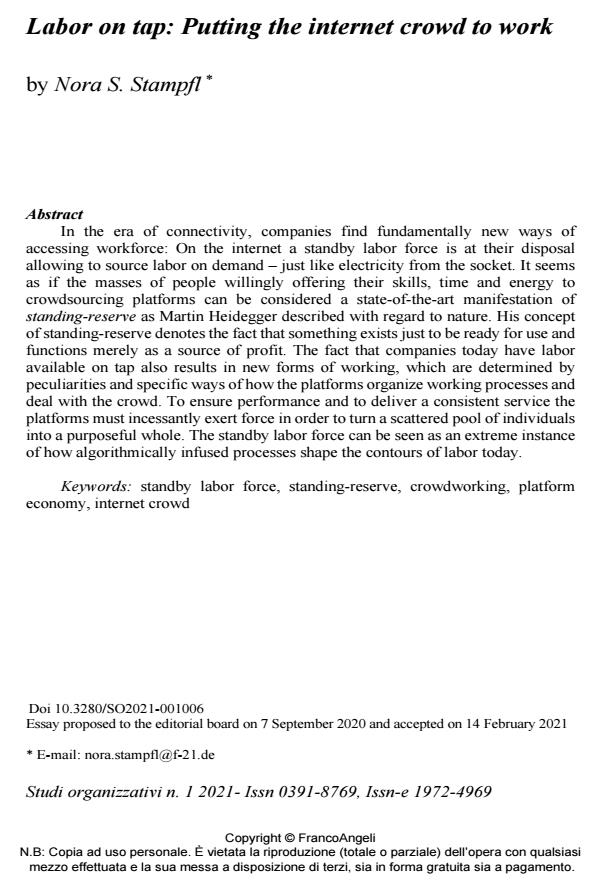Labor on tap: Putting the internet crowd to work
Titolo Rivista STUDI ORGANIZZATIVI
Autori/Curatori Nora S. Stampfl
Anno di pubblicazione 2021 Fascicolo 2021/1
Lingua Inglese Numero pagine 17 P. 129-145 Dimensione file 233 KB
DOI 10.3280/SO2021-001006
Il DOI è il codice a barre della proprietà intellettuale: per saperne di più
clicca qui
Qui sotto puoi vedere in anteprima la prima pagina di questo articolo.
Se questo articolo ti interessa, lo puoi acquistare (e scaricare in formato pdf) seguendo le facili indicazioni per acquistare il download credit. Acquista Download Credits per scaricare questo Articolo in formato PDF

FrancoAngeli è membro della Publishers International Linking Association, Inc (PILA)associazione indipendente e non profit per facilitare (attraverso i servizi tecnologici implementati da CrossRef.org) l’accesso degli studiosi ai contenuti digitali nelle pubblicazioni professionali e scientifiche
In the era of connectivity, companies find fundamentally new ways of accessing workforce: On the internet a standby labor force is at their disposal allowing to source labor on demand - just like electricity from the socket. It seems as if the masses of people willingly offering their skills, time and energy to crowdsourcing platforms can be considered a state-of-the-art manifestation of standing-reserve as Martin Heidegger described with regard to nature. His concept of standing-reserve denotes the fact that something exists just to be ready for use and functions merely as a source of profit. The fact that companies today have labor available on tap also results in new forms of working, which are determined by peculiarities and specific ways of how the platforms organize working processes and deal with the crowd. To ensure performance and to deliver a consistent service the platforms must incessantly exert force in order to turn a scattered pool of individuals into a purposeful whole. The standby labor force can be seen as an extreme instance of how algorithmically infused processes shape the contours of labor today.
Parole chiave:Standby labor force, standing-reserve, crowdworking, platform economy, internet crowd
Nora S. Stampfl, Labor on tap: Putting the internet crowd to work in "STUDI ORGANIZZATIVI " 1/2021, pp 129-145, DOI: 10.3280/SO2021-001006